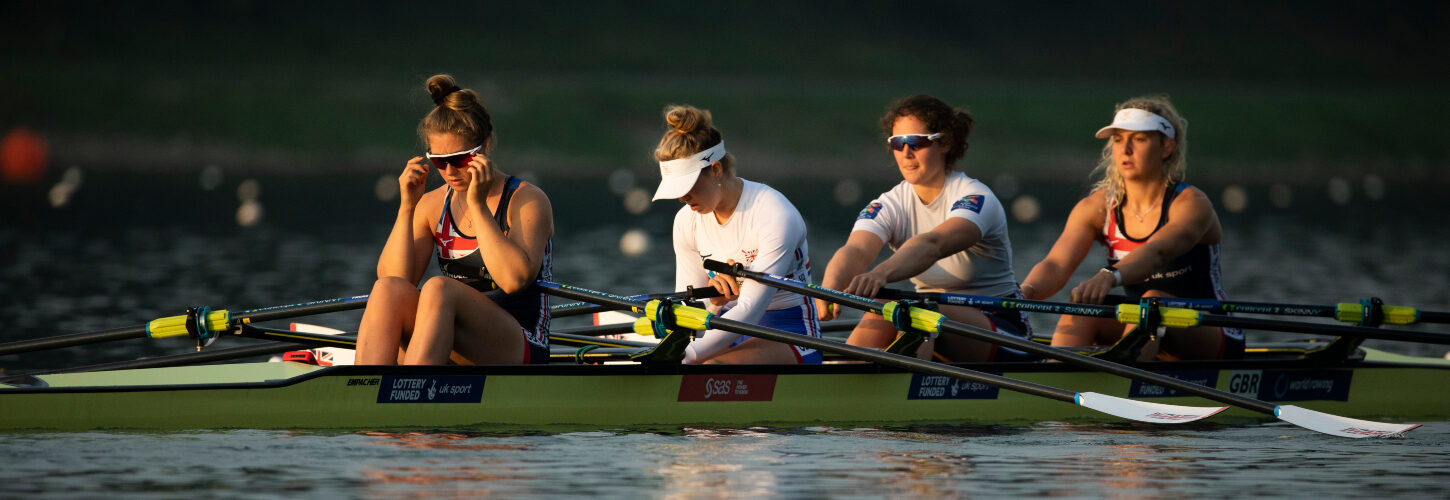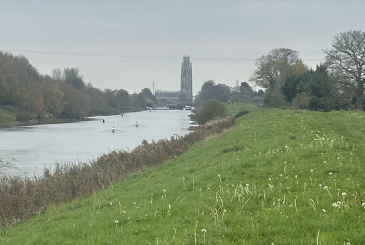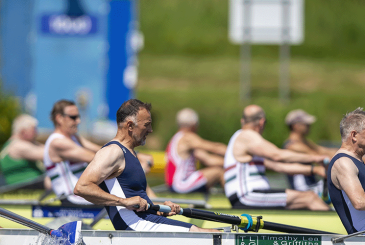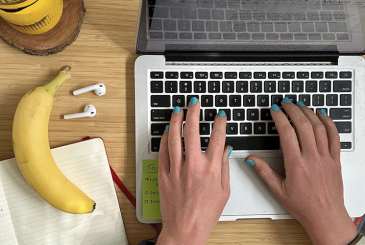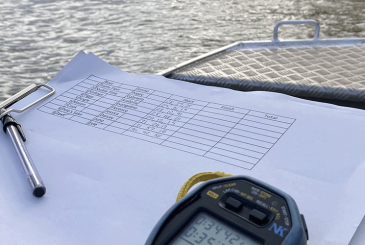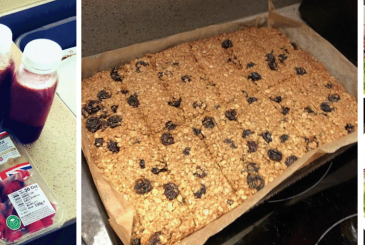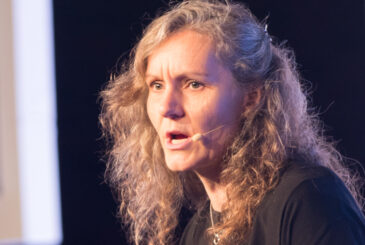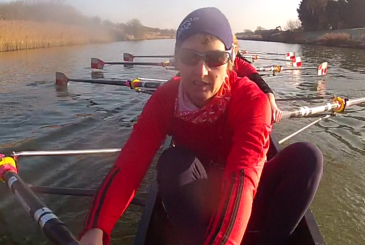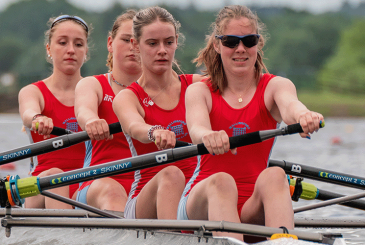After helping to qualify the women’s quad for Tokyo 2020, back in 2019, Jess Leyden is having to build up her training again as she recovers from COVID-19. A spare for April’s European Rowing Championships, she talks to Rebecca Charlton about her rowing journey
Jess Leyden, 26, is one of Britain’s most promising rowers. She won world championship gold at both junior and under-23 level on her way to becoming the first ever GB rower to win an international women’s single scull title.
In 2019 at the Worlds, she helped qualify the women’s quad for the Tokyo Olympics – particularly sweet after narrowly missing out on qualifying the same boat for the 2016 Games.
Throughout her rapid rise through the ranks and now on the road to Tokyo 2021, Jess has remained as modest and philosophical as ever, as she chats to Rebecca Charlton about her comeback from COVID-19.
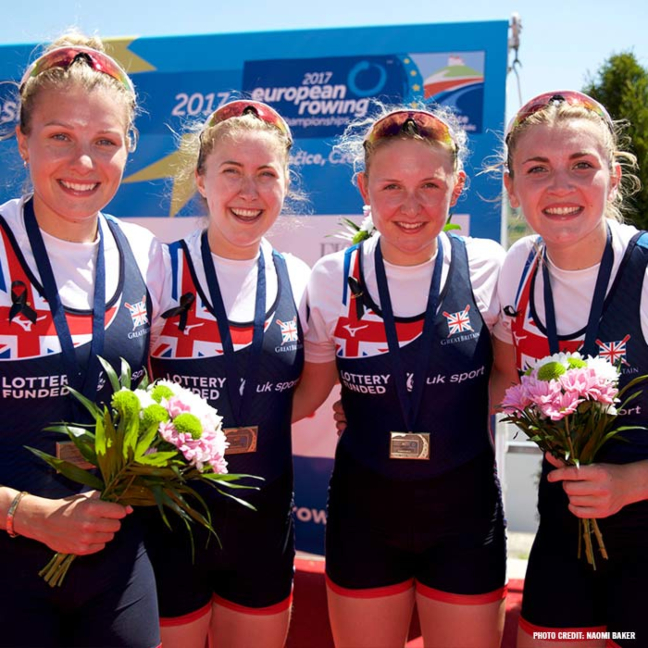
Rebecca: How is your recovery from COVID going?
Jess: Yeah, I’m feeling better now and I’m back to training, so it’s going well. It took a while to get over the first bit, but I’m getting there now. I’d say for the first five days I was like ‘okay I’ve had flu worse than this’ – I was ill but it wasn’t the worst thing in the world. However, after five days I dropped off the edge of a cliff a bit. I couldn’t do anything; I couldn’t read or focus, I just had to lie down and when I lost my smell and taste I couldn’t even have a cup of tea to make myself feel better. I didn’t want to eat and that’s not like me!
Rebecca: Have your senses fully returned?
Jess: I usually love eggs, but they taste a bit weird now – that’s the only thing that has surprised me really.
I think my recovery took a little bit longer than other people. I built up to two sessions a day, but I couldn’t do anything else. When I got home, I couldn’t even keep my eyes open – I just had to sleep for the rest of the time until I had my two sessions again.
I just wanted to train… but then I was banned from exercise for a week! It was really tough at the time, but definitely the right thing to do because the second time I built back to where I’m at now and I haven’t had a setback. It’s been really good.
Rebecca: It’s sometimes the hardest thing to listen to your body and take time out, isn’t it?
Jess: Training is hard. You push through the pain and play mind games with yourself to get through it and so your automatic response is to just want to push through this [COVID-19] too. But you can have long COVID, and you need to look after your body, rather than just thinking about the now. It’s a case of not listening to the monkey that is usually your advantage because in this situation it could be your downfall.
Rebecca: Starting at the beginning, what sparked your passion for rowing?
Jess: I rode horses from the age of three. We went to local shows and I did a bit of showjumping. I was a bit of a jack of all trades, master of none!
I was just so uncompetitive, and I was always put with the beginner group. When I was 12, I got kicked off my horse by another horse and broke my elbow. It kicked out, connected with my elbow and I was just like a football flying off the back of my horse. Around that time, I was in my first year of high school and the local rowing club came in with the Project Oarsome initiative. It was all about encouraging schoolchildren to get into rowing and that’s how I got in there.
“I said to him, “I don’t want to take this too seriously,” and then I went to my first national event and won by 30 seconds”
Rebecca: What made you more competitive on the water than you were on the horse?
Jess: I just really loved it, I always wanted to do more training, but at first I didn’t want to take it too seriously. I was put with Ian John who was my first coach, and he took me to Junior Worlds and coached me right up until getting into the team.
I said to him, “I don’t want to take this too seriously,” and then I went to my first national event and won by 30 seconds – then I thought ‘oh, I quite like this’ and that’s when I started to get competitive!
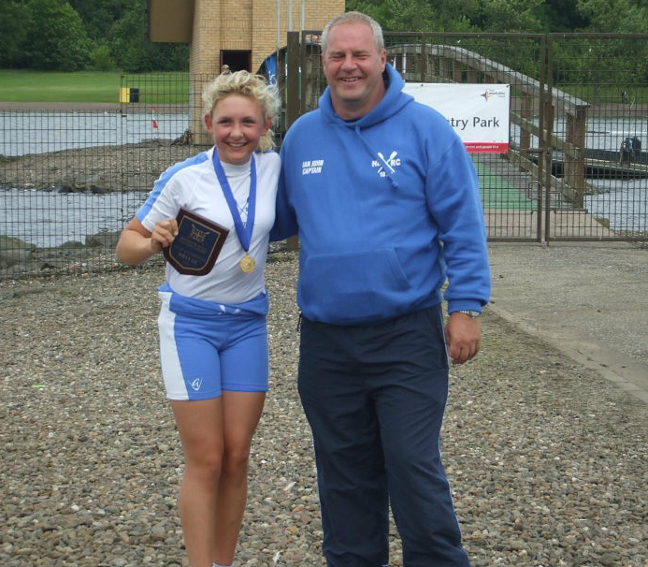
Rebecca: Why do you think you thrived?
Jess: I liked the technical side because it’s not just about how strong you are. That’s a massive part but it’s also about how you apply the technical side – it’s not just about being big. I’m quite small for a rower and I always have been, so it was cool to try and be technically better than everyone else as well.
Rebecca: What was the most significant steer your first coach gave you?
Jess: Whenever he pushed me off for any race – even my first junior race – he would just say “try your best”. He was just so chilled, and I was always the one that wanted to do more!
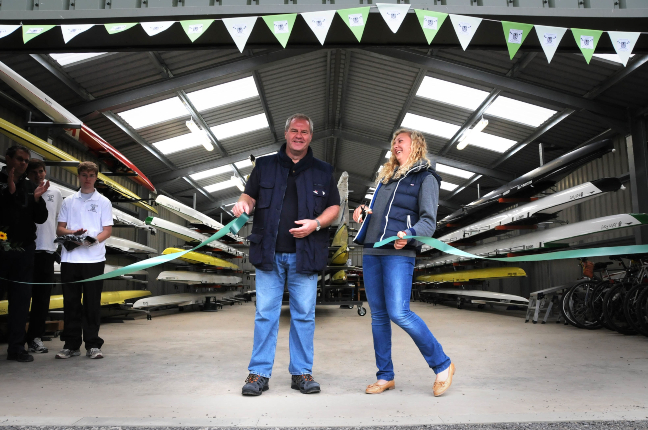
He was just really supportive and calm – and it wasn’t the end of the world if I didn’t win or get selected, we just tried different stuff. He never pushed me into anything, it was always me wanting to do it and I think that was massive.
He also took me in context as a young girl that had school and exams and considered how I’d be feeling. If I was really tired, he’d say “okay we don’t have to do loads today.” I was a whole person rather than just someone that he was trying to get to go faster in rowing.
“We were just so proud to have qualified our boat and those four seats for our country”
Rebecca: What was your breakthrough moment?
Jess: I think when I was selected as spare. That was a year after I won juniors and I decided I needed to focus on my A-levels, but then I was asked to go to the senior camps, and I was a spare at the senior worlds.
I then chose not to go to university and instead I chose to come to Caversham and that was the first time it was my job, which was cool.
I think even when I trained crazy hard as a junior, I’d never allowed myself to be called an athlete. I thought, ‘I’m just having fun it’s just a hobby, I’m not an athlete’, but when I started on the team I was like ‘okay I am an athlete now because I’m not doing anything else’!
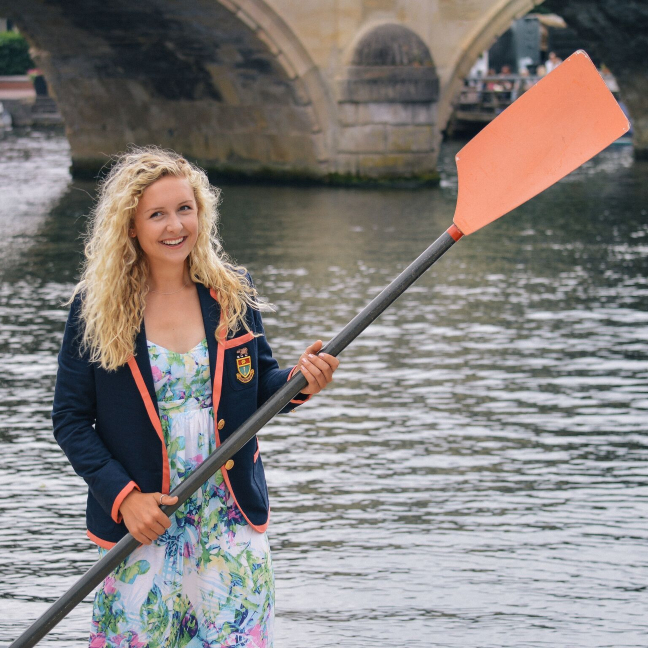
Rebecca: How did it feel to qualify the women’s quad for the Tokyo Olympics at the 2019 Worlds?
Jess: It was such a relief to qualify the quad for Tokyo. It had been our target since we didn’t qualify for Rio and we were so proud to have done it through the semi-finals as well. The qualification regatta is an extremely hard regatta so that was also a massive bonus to having qualified at the first opportunity. We were just so proud to have qualified our boat and those four seats for our country.
Rebecca: How did you adapt to training during the various lockdowns?
Jess: In April 2020 my uncle passed away during lockdown really suddenly. My dad passed away when I was 15 from a heart attack and rowing really got me through that, but I don’t think I really grieved properly.
I was really close to my uncle because when I was growing up with the horses it was me and my dad and my uncle – we’d go away every weekend and ride together. When my dad passed away, I got really close to my uncle and he really stepped up.
I really struggled in lockdown after that because I didn’t see him [and my family] as much because of rowing, and I think it just took me quite a while to get through that and fall in love with it again. At the time it was full lockdown so no one could go into the hospital. It was really tough on my family.
“I’ve managed to build myself back up to being a good racing spare when a couple of weeks ago it was touch and go”
Rebecca: Tokyo 2020 became Tokyo 2021, how certain is the season looking now, for you?
Jess: We’ve been told by the BOA and reassured that the Games is definitely going to go ahead, so that’s what we’re all going with and that’s a deadline that we’re going to go for.
We’re going to keep improving the boats and improving ourselves all the way up until the Games. I think we’ve got a World Cup to go to as well after the Europeans, so all of that is up in the air, but the Olympics is definitely on the radar at the moment.
Rebecca: How did you approach the Olympic postponement?
Jess: There was just so much more going on in the world at that point and it was definitely not the most important thing to be happening.
You want to go to an Olympics that is safe and equal to compete in, so it wasn’t a massive shock because of how things were going at the time and it was the right thing to do. I always planned to carry on training anyway after the Olympics, it wasn’t like I was planning on retiring, so it wasn’t massive in that respect.
Rebecca: Will you be out on the water for the Europeans?
Jess: I’m going to be spare for the Europeans because I haven’t done the trials and so I can’t get selected, but I feel really proud. I’ve managed to build myself back up to being a good racing spare when a couple of weeks ago it was touch and go whether I’d even be able to do that.
Rebecca: How excited are you to get back out there?
Jess: I’m very excited, I’m itching to be honest, but I’ve got to keep being a bit patient, keep building, but – yeah – it’s really hard to stay patient when you just want to race!
Photos: Naomi Baker, Jess Leyden and Nick Middleton


